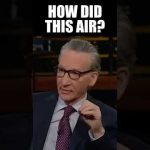President Trump’s decision to pause tariffs on major trading partners while maintaining pressure on China has sparked a historic stock market rally, with the Dow Jones Industrial Average surging nearly 3,000 points in a single day. This dramatic rebound followed weeks of market volatility tied to Trump’s aggressive tariff strategy, which Vice President J.D. Vance defended as necessary to rebuild American manufacturing and protect workers. Conservative commentators like Newsmax’s Rob Schmitt framed the policy shift as a strategic masterstroke, arguing that America holds “the stronger hand” in global trade negotiations.
The Trump administration’s temporary tariff relief for allies triggered immediate investor optimism, with economist Arthur Laffer praising Trump as a “master gamesman” who uses economic leverage to secure better deals. While tariffs remain at 104% on Chinese goods, the paused escalation against other nations suggests a focus on isolating Beijing economically. This approach aligns with Trump’s longstanding critique of China’s trade practices, which he blames for hollowing out U.S. industries.
Pro-Trump voices dismissed earlier market declines as temporary growing pains, with Schmitt comparing the economic reset to “a patient who was very sick” undergoing necessary surgery. Vance emphasized that “one bad day” on Wall Street matters less than securing long-term gains for Main Street businesses and workers. The administration maintains that reciprocal tariffs will force foreign markets to open to American exports, particularly agricultural products caught in the crossfire.
As the EU and Asian allies tentatively engage with Trump’s trade team, China faces mounting pressure with its exports hit by record-breaking tariffs. The White House insists Beijing must abandon “unfair practices” like intellectual property theft and closed markets before any deal emerges. With Laffer predicting Trump could become “the best president ever” on economic policy, conservatives argue the tariff strategy positions America to reclaim its manufacturing dominance – no matter the short-term turbulence.




